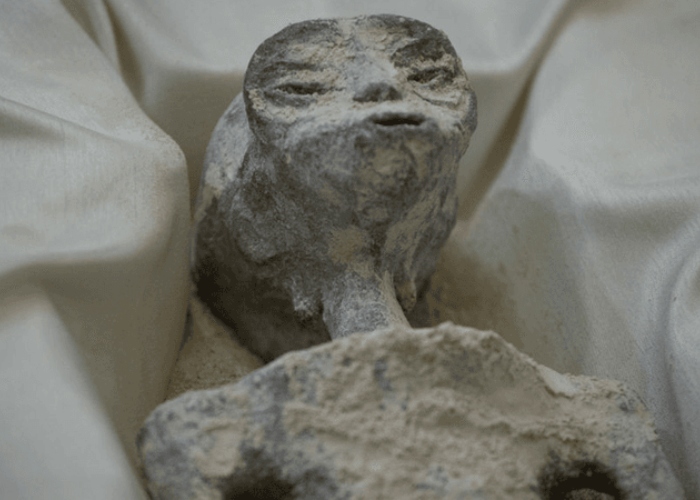Last week, a whirlwind of controversy swept through Mexico’s scientific and public circles when ufologist Jaime Maussan claimed to have evidence of alien life. Presenting a blend of human and animal bones as “non-human entities” to Mexico’s Congress, Maussan shocked the world and rattled the scientific community in the country. Now, leading Mexican scientists have retaliated, dismissing the claims as baseless and damaging to the reputation of science in Mexico and beyond. Here’s an insight into the unfolding saga and its implications.
Science Strikes Back: The Rational Retort
On September 19, a conference held by Mexico’s scientific community sought to debunk Maussan’s claims, pointedly asking, “Extraterrestrials or Llama Skeletons?” Alejandro Frank, a professor of mathematical physics at Universidad Nacional Autónoma de México (UNAM), summed up the sentiment by stating that the conference wasn’t convened to address Maussan’s history of outlandish theories but to tackle the absurdity of his claims being presented in an official setting like Mexico’s Congress. By doing so, Maussan had endangered the credibility of scientific rationality in Mexico, pushing the country to the brink of becoming a subject of international ridicule. Scientists stressed that in the face of real-world problems like climate change and pandemics, giving credence to such quackery was not just irresponsible but dangerous.

The Consequences of Pseudoscience on Public Perception
While it’s easy to dismiss Maussan’s claims as merely laughable, the wider implications cannot be ignored. Alejandro Frank emphasized how this event could potentially affect critical areas such as climate policy, given that Mexico’s scientific reputation was already in a precarious position. He urged Mexico’s Consejo Nacional de Ciencia y Tecnología, or National Council on Science and Technology, to address this issue publicly and restore faith in scientific discourse. Frank argued that the initial silence of scientific agencies risked bolstering superstitions and pseudoscience at the expense of empirical evidence and rational discussion.